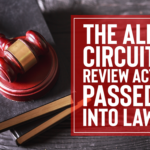If there is one thing that people outside the law understand about attorneys is that they are quite often expensive, to say the least. Defending yourself against criminal charges, fighting off a civil lawsuit against your business, and even getting divorced can mean large legal bills. Thus, the thought of bringing a lawsuit – even where there is clear merit to a person’s allegations – can feel intimidating due to the perceived cost. In the world of False Claims Act (FCA) claims, it is important for a potential whistleblower to think through the potential challenges and costs of bringing an FCA claim. And while there certainly are such challenges, financial costs placed on the whistleblower personally are generally not an issue that deter whistleblowers from coming forward.
Most FCA Attorneys Pursue Claims on a Contingency Basis
Attorneys generally earn revenue in one of two ways: 1) billing the client upfront or an action proceeds through either hourly billing or flat-fee arrangements; or 2) by working on contingency. FCA attorneys generally pursue claims on behalf of clients on a contingency basis.
In the world of law, a contingency basis means that the attorney will collect a legal fee as a portion of the plaintiff’s ultimate recovery. If the plaintiff does not win recovery, he or she will owe the attorney no legal fee, although the plaintiff may be responsible for some administrative fees, such as filing fees. And if the plaintiff does win, the attorney will take a percentage of that recovery, generally in the 35 to 40% range.
Thus, in the initial stages of bringing an FCA claim, the plaintiff whistleblower will usually only be responsible for relatively minor costs such as filing fees. And, because a whistleblower attorney knows he or she will only recover legal fees if the claim is successful, that attorney will only pursue FCA claims with a good likelihood of success.
Working With the Government On Your FCA Claim
After an attorney files an initial whistleblower complaint on behalf of a plaintiff, the U.S. Department of Justice will then examine the merits of the claim to determine whether it will join the plaintiff in pursuing the claim. If that happens, the federal government will devote significant resources toward pursuing the claim, and the plaintiff will be in a good position of being eligible to obtain a large financial reward (between 15 and 30% of the total recovery from the defendant – which can be quite significant in many cases) while the government is handling many of the costs.
If the federal government does not join in on the FCA claim, the plaintiff may still pursue the claim against the defendant, but without the resources of the government. The plaintiff can work with his or her attorney to determine what potential out-of-pocket costs might be involved in doing so. At all times, the plaintiff is in the driver’s seat of determining whether to continue pursuing an FCA claim or not.
Work with Experienced Whistleblowing Attorneys You Can Trust
By bringing an FCA claim, you can fight corruption while also potentially obtaining a large financial reward for yourself. If you have information relating to fraud perpetrated against the federal government – including Medicare/Medicaid fraud, procurement fraud, disaster relief fraud, or any other type of fraud – you may be able to bring a successful FCA claim. The experienced whistleblower attorneys of Kreindler & Associates will work with you every step of the way to determine your appropriate course of action, protect you from retaliation, and collect your much-deserved reward. Contact us today for an evaluation of your allegations.




